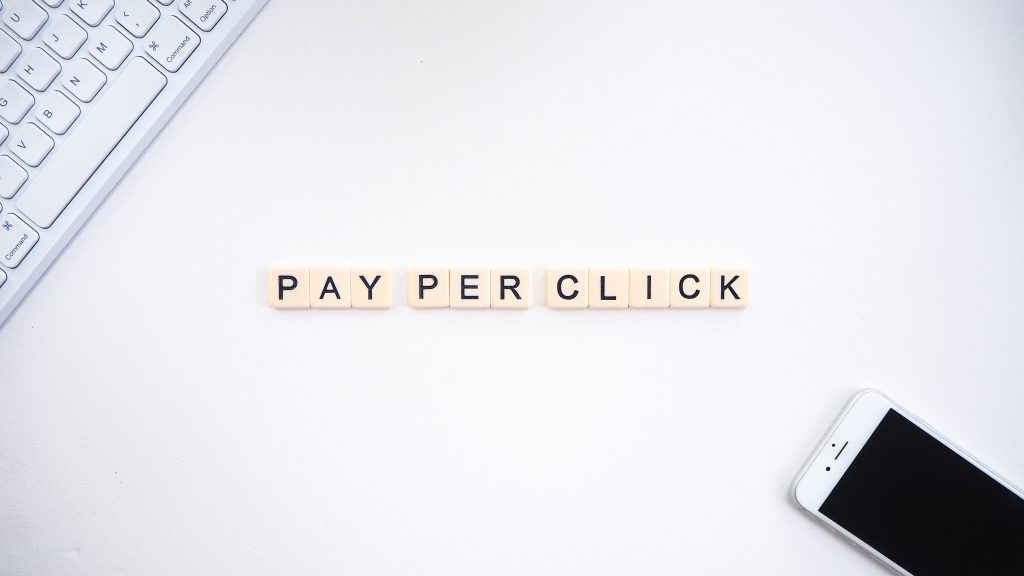PPC stands for “pay-per-click,” which is a marketing method in which you pay search engines and other websites to promote your website or items.
When someone clicks on your ad, you just pay for the time they spend seeing your advertisement. This makes PPC substantially more enticing than conventional advertising since you only pay for outcomes with PPC. An analogy is to set up a billboard and only pay the advertising business when someone who viewed your billboard comes into your shop.
PPC also provides free exposure, which is a huge bonus. Because you only pay when someone clicks, you’re increasing brand exposure with everyone who doesn’t click for free. And even if they don’t click this time, they are statistically more likely to click your ad the next time they search.
PPC Stands For Pay Per Click Advertising
Pay-per-click (PPC) advertising is a term used to describe CPC (cost-per-click) advertising, such as Google Ads. CPC is based on the principle that you should be compensated for every click that occurs on your ad. Advertisers may place bids on regularly searched terms and keywords to have their advertisements appear in search results, which is why they often describe search ads. Pay-per-click advertising (PPC) is a kind of advertising that allows you to pay depending on the number of clicks you get. PPC advertising is often compared to CPC advertising in the industry.
Exactly what does “PPC” mean?
If you want to spread the word about your fantastic goods and services to a wider audience, you should include PPC in your marketing strategy.
In order to grow your consumer base, you should use pay-per-click advertising.
In contrast to the increasingly limited free organic reach, PPC advertising is those that you pay for to be seen by your desired audience more quickly.
With PPC, you pay to have your website show up at the top of a search engine’s results page (SERP).
There are a lot of them if you search for anything on the internet.
Your ad will appear on the SERP above or to the right of the search results in an attempt to get users to click through to your website.
You get paid every time someone clicks on your ad.
When executed correctly, PPC will:
- Generate quality leads.
- Create a successful customer journey.
- Provide an impressive return on investment (ROI).
You have to pay to play, but it works.
See what we found when we typed “jeans” into Google. Despite the fact that there were millions of results, only the adverts at the very top of the list caught my eye.
With over 90% of the global search engine market share and over 63,000 searches per second, Google is a veritable search engine powerhouse.
What is PPC? Pay-Per-Click (PPC) Marketing: The Basics
Is PPC marketing something you’ve heard of but have no idea how to get started? If so, you’ve come to the perfect spot! Our PPC University courses are broken down into three sections to help you learn as much as possible about PPC and make it work for your business.
The first step is to build a working definition of PPC and a foundational knowledge of how PPC advertising works. There we go!
What is PPC?
Payment is made each time an ad in which the advertiser’s logo appears is clicked. This is called pay-per-click (PPC). To put it another way, rather than striving to “earn” those visits naturally, you may pay for them.
One of the most prevalent kinds of PPC is search engine advertising. It enables marketers to bid for ad placement in a search engine’s sponsored links when someone searches for a term that is relevant to their company. There are a number of factors that determine where our ad will appear on the Google search results page.
We have to pay a tiny charge to the search engine every time one of our ads is clicked, resulting in a visitor to our website. If you’re using PPC effectively, the charge is little since the visit is worth more than what you’re paying for it. However, if the click leads in $300 in sales and we spend $3 for the click, then we’ve earned a sizable profit.
Researching the correct keywords, arranging them into campaigns and ad groups, putting up PPC landing pages that are optimized for conversions are just a few of the many steps required to develop a successful paid search campaign. Those that are able to design pay-per-click programs that are both relevant and precisely targeted are rewarded by search engines with lower ad click costs. Google costs you less per click if your advertising and landing pages are helpful and gratifying to consumers, resulting in better earnings for your company. There are a number of things you need to know before launching a PPC campaign.
What is Google Ads?
One of the most widely used PPC advertising systems in the world is Google Ads. Businesses may use Google’s Advertisements platform to develop ads that display on Google’s search engine and other Google sites, such as YouTube and Gmail.
Users bid on keywords and pay for each click on their adverts in Google Ads, which runs on a pay-per-click approach. In order to fill the precious ad space on its search results page, Google randomly selects ads from its Ads advertisers each time a search is performed. According to a variety of variables, including the quality and relevancy of their keywords and ad campaigns, as well as the magnitude of their keyword bids, the “winners” are crowned.
What is the true performance of your Google Ads? Use our Google Ads Performance Grader to find out.
Ad Rank, a statistic computed by multiplying two important elements – CPC Bid (the maximum amount an advertiser is prepared to pay) and Quality Score – determines who appears on the page (a value that takes into account your click-through rate, relevance, and landing page quality). Winning marketers may reach prospective consumers at a price they can afford because to this approach. In a way, it’s like an auction.
Because Google Advertisements is the most popular search engine in the world, your ads will receive the most views and clicks if you utilize it to conduct PPC marketing campaigns. Depending on the keywords and match types you choose, your PPC advertisements will display more often or less frequently. PPC advertising campaign success depends on a variety of elements, but by concentrating on the following, you may significantly improve your chances of success.
- Proper ad content and keyword grouping are essential to ensuring your PPC campaign’s success.
- When creating a landing page, it’s important to keep in mind the precise search terms people are using to find your product or service.
- Your keywords, landing pages, and PPC campaigns are rated by Google based on their quality and relevancy. More ad clicks and reduced ad expenses are achieved by advertisers with higher Quality Scores.
- You may use a tool like our free Smart Ads Creator to produce designer-quality ads that demand clicks while you’re advertising on the display network.
Keyword Analysis for Pay-Per-Click Advertising
If you’re using PPC, you’ll need to spend a lot of time on keyword research. Keywords are the foundation of your PPC campaign, and the most successful Google Ads marketers are always expanding and refining their PPC keyword list. It’s possible to lose out on hundreds of thousands of important, long-tail, low-cost, and highly relevant keywords if you simply undertake keyword research once you start your first campaign.
An effective PPC keyword list should be:
- Paying for Web traffic that has nothing to do with your organization is a no-no, obviously. A greater PPC click-through rate, lower effective cost per click, and better revenues are the goals you aim to achieve. The keywords you bid on should thus be closely tied to the products you sell.
- Including the long tail of search phrases in your keyword research can help ensure that your search engine optimization campaign is thorough. However, long-tail keywords make for the bulk of traffic generated by search engines. As a bonus, they are less competitive, which means they are less costly.
- Expansive – PPC is iterative. You want to constantly refine and expand your campaigns, and create an environment in which your keyword list is constantly growing and adapting.
Keeping an Eye on Your PPC Marketing
You’ll need to keep an eye on your new campaigns once you’ve set them up if you want to keep them working. One of the biggest indicators of account success is consistent account activity. You should be constantly monitoring your account’s performance and making the following adjustments:
- Add Relevant PPC Keywords: Make your PPC campaigns more visible by including keywords related to your company.
- Make Use of Negative Keywords: Use negative keywords to exclude non-converting phrases from your campaign and save money.
- Split your ad groups into smaller, more relevant ad groups to help you produce more focused ad content and landing pages, which will improve your click-through rate (CTR) and Quality Score.
- If a PPC keyword is overpriced or underperforming, it should be shut off.
- You can improve your landing pages’ performance by tweaking their content and CTAs in accordance with the specific search terms that people are using. Don’t direct all of your visitors to the same page at once.
What Are the Best Ways to Ensure the Success of Your PPC Campaign?
With patience, persistence, and a well-thought-out approach, you can establish a successful PPC campaign.
Listed below are a few items you might consider including in your list:
1. Optimize Your Website
Is your website up to date? You ought to.
Before launching a PPC campaign, it’s critical to update and optimize your website and create landing pages that operate in tandem with your advertising.
Prospects that click on your PPC ad did so because they were attracted to the ad and wanted to learn more about it.
If they click on a link and it brings them to a page on your website that has nothing to do with the ad, they are likely to quit and go on to a competitor’s website instead.
Keep your website updated and user-friendly as well.
The more people enjoy what they see on your site’s landing page, the more likely they are to visit further pages, such as the blog or the product detail page.
2. Set Specific Goals
Before you begin any PPC campaign, you should have a clear idea of what you want to achieve.
You’ll be able to focus your efforts and get the most bang for your ad spend if you have clear goals in mind when choosing the platforms on which you’ll run your campaigns.
3. Establish Keywords
Your keywords are critical to a successful PPC campaign, as stated above.
Researching and jotting down important keywords for your company will make it simpler to develop adverts and content. This is a continuous process.
4. Create Relevant Content
If your PPC ad text isn’t relevant to your target audience or doesn’t meet their wants and pain areas, it’s not going to be effective.
Understand your target audience by creating buyer personas. Provide them with exactly what they’re looking for by creating relevant content.
To get people to click and go to your website, you need to make your material interesting enough to pique their interest.
If you want your audience to know what you want them to do, use a strong active voice, eye-catching images, at least one keyword, and a call to action phrase (CTA) like “purchase now” or “register now.”
5. Design Persuasive Landing Pages
A landing page, as previously said, is a location on your website to which customers are routed after clicking on your ad.
Including this in your PPC plan is critical. Ad campaigns are all about getting people to take action, so your landing page should be filled with information that is engaging and convincing.
It’s also important that it look well. Your visitors should have a cause to stick around and learn more about how you can help them improve their lives.
When Google and other search engines see that your landing page is linked to your ad, they will give you a boost in the ranks for that ad.
6. Review, Analyze and Repeat
An ever-changing and ever-evolving marketing process.
Some aspects of consumer behavior are predictable, while others are not.
PPC advertising and overall content that are flexible, imaginative, and adaptive enable you to maintain successful campaigns while tweaking the ones that are not.
The End Is InSight.
Pay-per-click (PPC) advertising initiatives may propel your firm into the future.
However, keep in mind that there are several levels to building a successful program.
Because of this, you need to be familiar with the distinctions between PPC and CPC (cost-per-click). Fortunately, we’ve written about it in detail on our blog.







